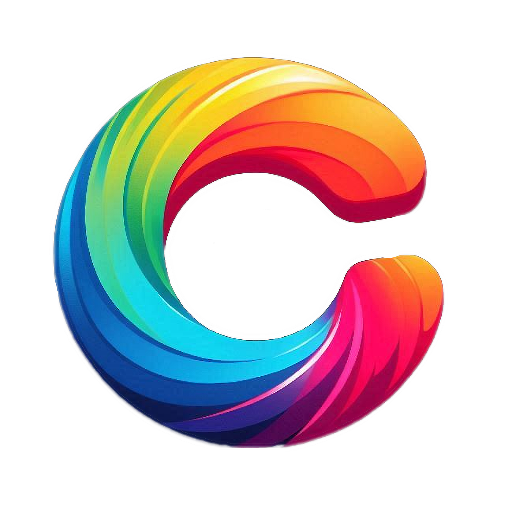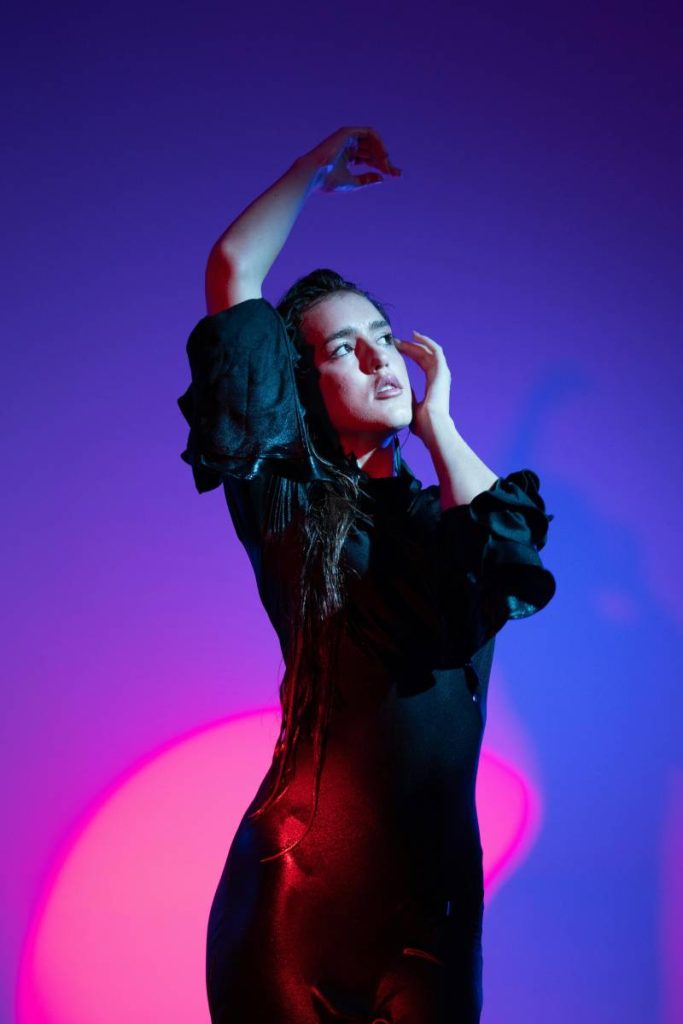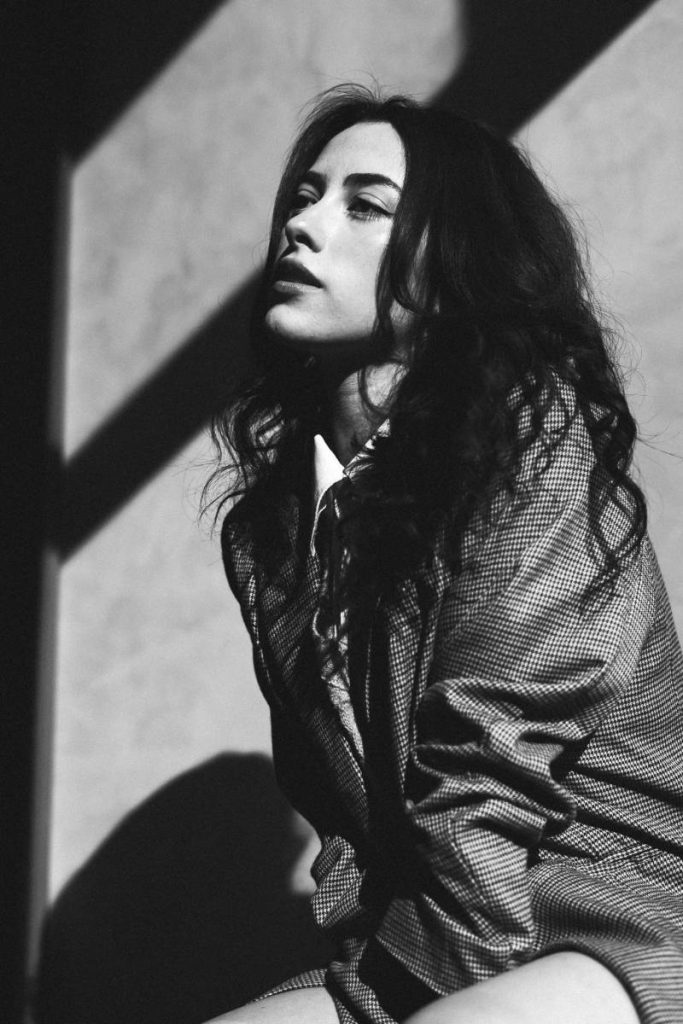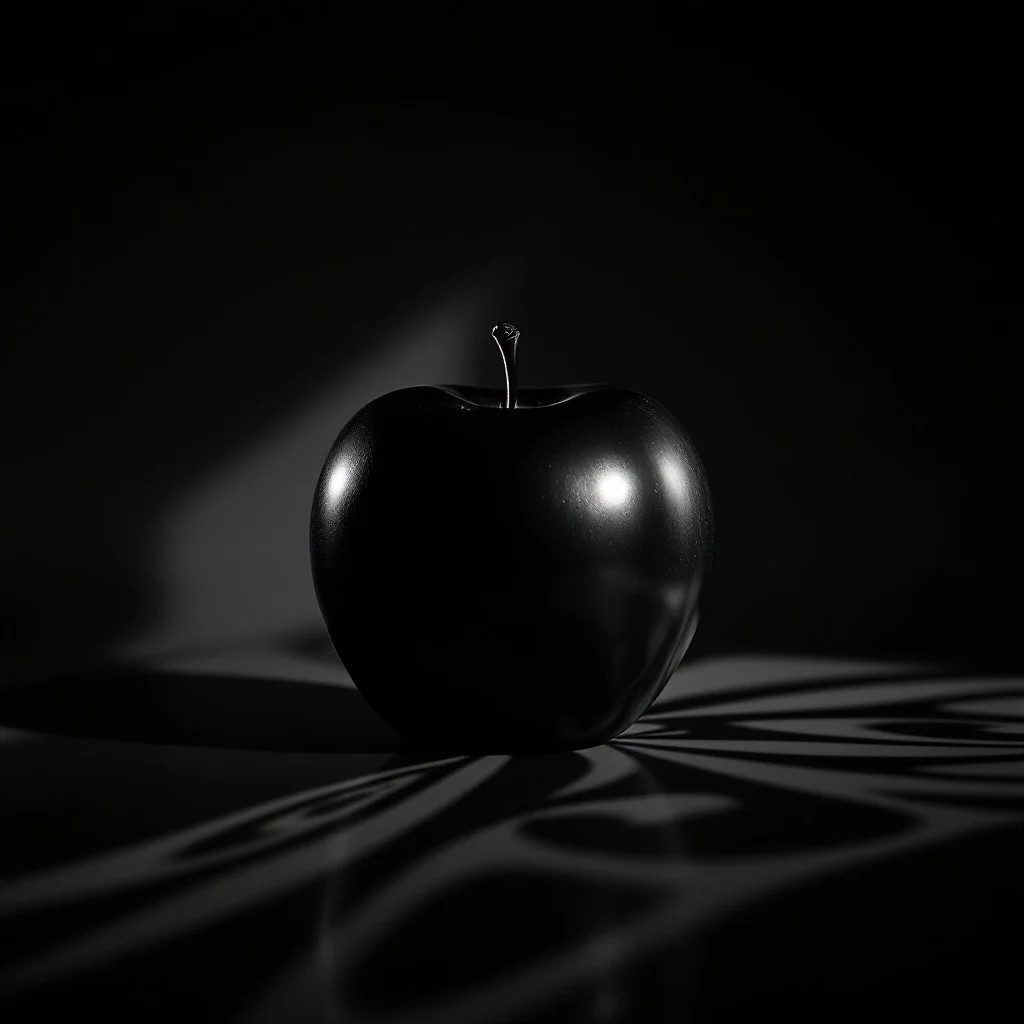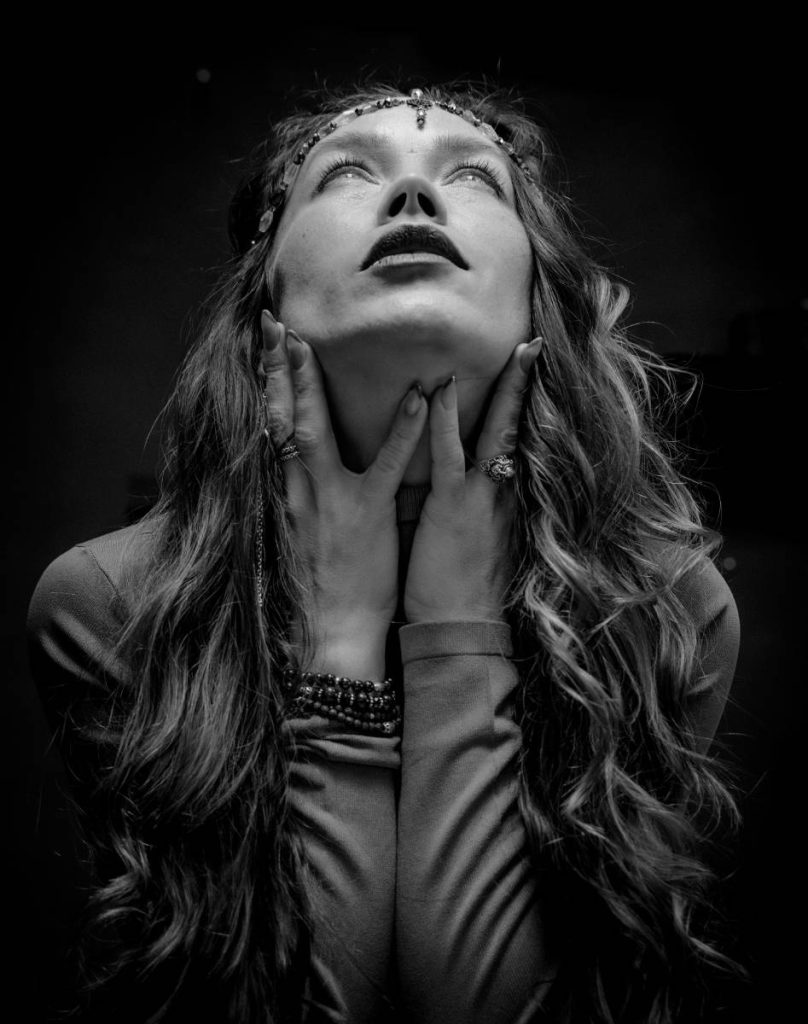Bold contrast photography is a visual style that uses strong differences between elements to create dramatic, powerful images. The most common contrast types are light vs dark, black vs white, or bright vs muted colors. These contrasts make the subject stand out and give the image a striking, bold look.
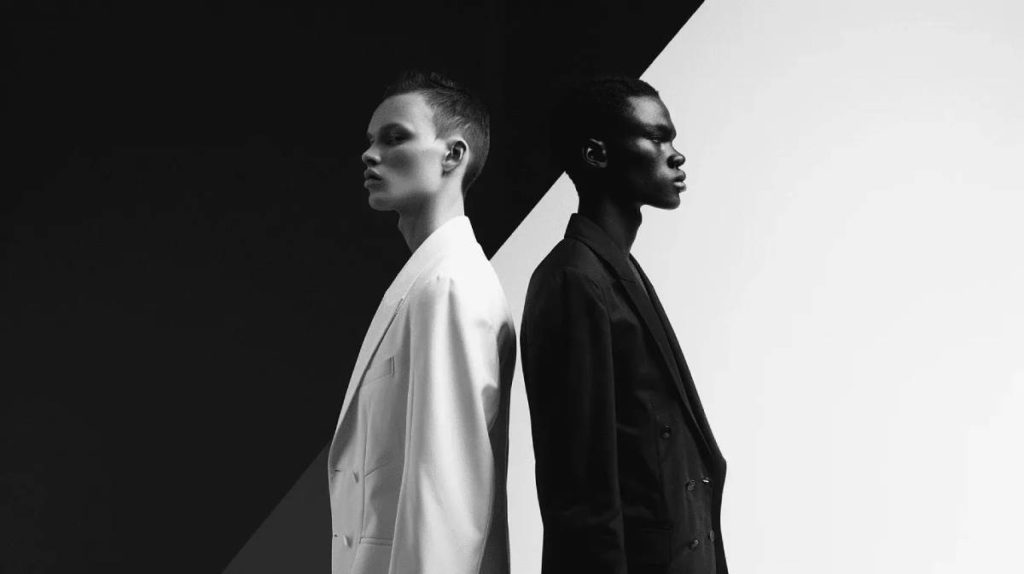
A Short History of Bold Contrast in Photography
Bold contrast began in early black and white photography, where light and shadow were the only ways to create depth. Famous photographers like Ansel Adams and Henri Cartier-Bresson used contrast to highlight emotion, shape, and movement.
In modern times, bold contrast is used in fashion photography, street photography, fine art, and advertising. Color contrast has also become popular thanks to digital editing tools.
Features of Bold Contrast Photography
- High contrast lighting – clear difference between light and dark areas
- Sharp edges and shadows – no soft blending, everything is defined
- Strong colors or black & white – can be used in both color and monochrome
- Focus on shape and form – contrast makes outlines stand out
- Minimal distractions – simple backgrounds help contrast shine
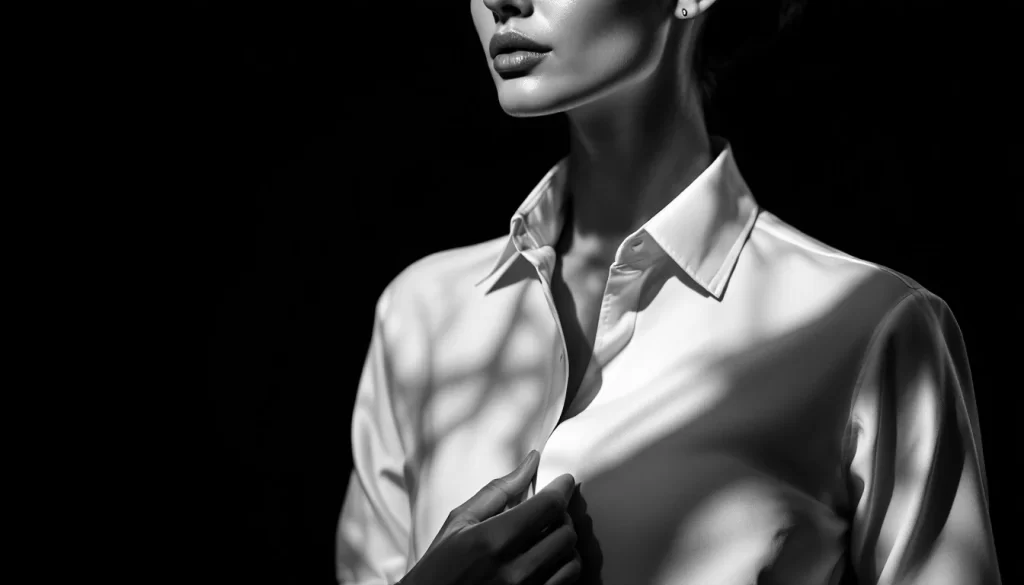
Functionalities of Bold Contrast Photography
- Draws attention to the subject
- Tells strong visual stories with few elements
- Ideal for emotional or powerful messaging
- Great for posters, portraits, editorial spreads
Step-by-Step Development: Creating Bold Contrast Photos
1. Choose Your Type of Contrast
- Light vs Shadow: Use sunlight or artificial lighting to split the frame.
- Color vs Color: Use opposite colors (blue/orange, red/green) for a vibrant look.
- Texture Contrast: Pair rough with smooth surfaces.
- Shape Contrast: Use strong geometric patterns vs soft curves.
2. Pick the Right Gear
- Camera: Any DSLR, mirrorless, or smartphone with manual settings
- Lenses: 50mm or 85mm for portraits, wide-angle for street or fashion
- Lighting: A single light source (e.g., off-camera flash, LED light, window light)
- Light modifiers: Reflectors, black flags, or snoots to control shadows
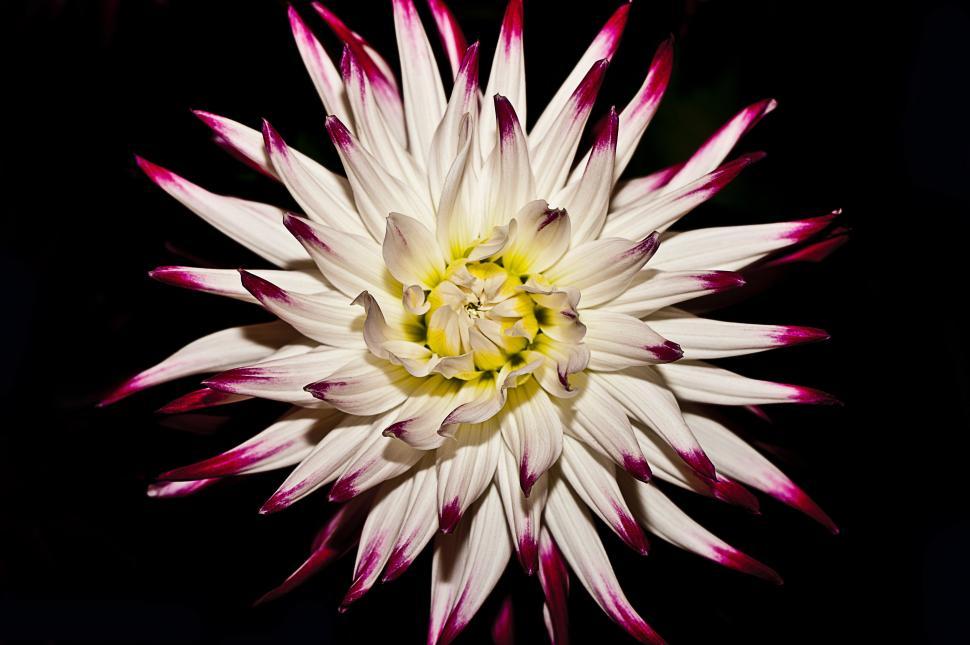
3. Choose Props and Clothing
- Dark clothing with light background or bright props on dark surfaces
- Bold accessories like neon lights, white umbrellas, or black hats
4. Find the Right Background
- High contrast backdrops: black curtains, white walls, urban street textures
5. Compose the Shot
- Use negative space to separate the subject
- Frame with lines, windows, or shadows
- Let the contrast tell the story, not clutter
6. Edit for Maximum Contrast
- Increase contrast and clarity in editing apps (Lightroom, Snapseed)
- Convert to black and white for a more dramatic effect
- Use dodge and burn to brighten highlights and deepen shadows
Advantages of Bold Contrast Photography
- Instant visual impact
- Works well in black & white and color
- Highlights emotion, texture, and shape
- Minimal setups needed for powerful results
- Great for beginners exploring light and shadow
Disadvantages of Bold Contrast Photography
- Tricky lighting control – easy to overexpose or lose detail
- Can look harsh or unnatural if overdone
- Limited for soft, romantic, or dreamy styles
- Requires careful subject placement and editing balance
How to Become an Expert in Bold Contrast Photography
- Study contrast in classic photos – look at black and white street photography or dramatic portraits.
- Practice with one light source – like a lamp or window to shape shadows.
- Shoot in monochrome – helps you focus on light, shape, and form.
- Explore color theory – learn how opposing colors create tension.
- Use editing tools to fine-tune contrast, clarity, and tone curves.
- Experiment with minimalism – fewer elements make contrasts stand out more.
- Build a contrast-focused portfolio – show side-by-side light vs dark, color vs black-and-white sets.
The Future of Bold Contrasts Photography
Bold contrast is timeless. With tools like AI editing, color grading apps, and mirrorless cameras improving dynamic range, photographers can now push contrast further without losing detail.
This style is also becoming more popular in:
- Social media ads
- Album covers
- Activism art
- High-end fashion shoots
Bold contrast will always have a place in visual storytelling. It’s simple, powerful, and unforgettable.
sample shot list and a visual mood board guide to help you plan a bold contrasts photography shoot. This setup works for a portrait or fashion-focused shoot but can be adjusted for still life or editorial styles.
THEME: “Light vs Shadow – Bold Personality”
- Mood: Dramatic, edgy, artistic
- Color Palette: Black, white, red accents
- Style: High contrast lighting, strong shadows, bold expressions
SAMPLE SHOT LIST – Bold Contrast Photography
| Shot No. | Shot Type | Description | Props/Notes |
|---|---|---|---|
| 1 | Black & White Close-Up | Portrait with dramatic shadows on half of the face | One-side lighting (use window or flash) |
| 2 | Full Body Silhouette | Model standing in front of strong backlight creating a dark outline | Use white wall or sheer curtain with backlight |
| 3 | Color Pop Portrait | Neutral clothing with one red accessory (e.g. lips, scarf, hat) | All other colors muted |
| 4 | Hands & Texture Detail | Close-up of hands against a textured background with shadow fall | Use brick, curtain, or patterned wall |
| 5 | Shadow Pattern Shot | Shadows from window blinds or a net fall on the subject’s face/body | Use patterned shadows for interest |
| 6 | Side Profile in Contrast | Half lit profile against a black or gray background | Use rim light or softbox from one direction |
| 7 | Mirror Reflection Shot | Face in mirror placed at an angle, with contrast between background and subject | Small mirror, dark room |
| 8 | Walking Into Light | Model walks from dark area into a beam of light | Great for outdoor or street setups |
Visual Mood Board Guide
Here’s how to build your visual mood board:
Platforms to Use:
- Canva
- Milanote (great for photographers)
Mood Board Sections:
| Section | What to Include |
|---|---|
| Lighting Styles | Diagrams or samples of side light, backlight, harsh shadows |
| Color Inspiration | Black, white, red, bold primary color samples |
| Posing Ideas | Dramatic poses, expressive eyes, side profiles |
| Backdrop Ideas | White seamless, dark velvet, concrete walls |
| Props | Mirrors, blinds, fabric, chairs, gloves, hats |
Optional Gear/Props Checklist:
- DSLR or Mirrorless camera (manual mode preferred)
- 50mm or 85mm lens for portraits
- Softbox or LED light with dimming option
- Black and white fabric backdrops
- Red lipstick or scarf for pop of color
- Small handheld mirror
- Net fabric or window blinds (for creative shadows)
- Reflector or black foam board (to shape light)
